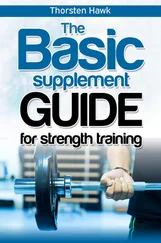She goes on to point out that she has sold 30 books in her career, mostly to major houses. Of those, she made all but 7 of the sales herself.
Laura then describes some of the tribulations of working with agents, some of who would ‘give up’ after 1-4 rejections, and retire a book for ever, refusing to discuss it or send it out again. Of her many agentless sales, 9 were of books which agents had declined to handle at all, or had refused to send out again after 1-2-3 of their pals turned it down.
5.3 How to make life difficult
If you’re still determined to go your own way, and find yourself an agent, then by all means start to enquire. Buy a copy of The Writers’ and Artists’ Yearbook (in the UK) or The Writers’ Market (US) and draw up a list. Write to the most likely prospect. And then another one. Followed by another one, and another one, possibly for years on end. Agents who are suitably professional and well known are not easily persuaded to take on an as-yet unknown and unpublished writer.
But do beware. In the course of this book I have set out a number of ways in which the relationship between a good agent and a good a writer can go badly rwong. Which is a little joke, of sorts. But things going wrong are not a joke. Not at all. Tread carefully. In the course of this book ebook I have, I hope, given ample indication of the risks and dangers
For the record, and just to leave you in no doubt, I hold no qualification as a career counsellor. Furthermore, I am not in any way, shape or form a lawyer; and a lot of the issues dealt with in this book are essentially legal matters. To get a book published by a traditional publisher you will need, one way or another, to sign a contract. Possibly two: agent, then publisher. And of course you might be so pleased to be offered such a contract that you sign it immediately, without reading any of it.
I consider that to be very unwise. But you should not regard me as any sort of authority on the wisdom or otherwise of doing so. I have a view, but the decisions are ultimately your own, and I’m not responsible for any consequences of your actions.
5.4 Acting as your own agent
If you really do want to be published in ‘proper’ printed form, by a well known traditional firm, then it is perfectly possible, despite what it says on the web sites, and despite what I’ve said earlier, to send in a submission yourself; Laura Resnick demonstrated this point. And, if this submission is drafted and targeted properly, it will stand every bit as much chance of being accepted as will an agented submission.
To repeat: Yes, I know that contradicts what I said earlier, but that’s because I wanted to lead you through this quagmire one step at a time.
If you read the trade magazines in whatever country you live in, and if you read things like Publishers Lunch, and read the reviews in Publishers Weekly , and generally keep your eyes open, you will gradually discover two things.
First, you will learn what kind of books a particular publisher, or imprint, specialises in. For example, Harlequin do romances. Then, you will get to know the names of editors working for that imprint. Some of them are legends in their own lunchtime. And you will discover which editor worked on which book, and which other authors she has on her list.
Gradually, you can build up a small list of editors who might be receptive to your particular book. And then, by one means or another, you can find a way to meet said editor at a conference, perhaps; or get to know someone who knows the editor (never hurts to know someone who is connected); and so on. Writing letters is a last resort.
If you can’t draw up a list of editors like this (which is exactly what an agent would do), then you are in trouble; you are just firing your shotgun into the darkness, whereas what you really need to do is aim a rifle at a very small target.
If you try to submit unsolicited manuscripts to a traditional publisher, without a careful and targeted approach, your parcel will just bounce back. In Hollywood they won’t even open it.
If anyone in traditional publishing nibbles, or preferably long before, you should also read my ebook A Writer’s Guide to Traditional Publishing , so that you know what you are letting yourself in for.
And, should a contract appear in the post, find yourself an experienced lawyer who specialises in intellectual property, and have the contract checked. Carefully.
If you’ve done your homework, you will know that the contract has good points and bad points. But don’t rush to sign it unless you understand the thing properly.
5.6 Digital self-publishing
My general view, as of 2014, is that the smart writer is not thinking about traditional publishers at all (apart from watching bemused as they slowly slide down the drain). The smart writer is looking at being an indie publisher, working through Kindle and similar outlets.
I started with Smashwords, but I soon changed to Amazon and the Kindle. And there are now hundreds, possibly thousands, of books advising you how to publish through Kindle Direct Publishing. This isn’t one of them.
Start with Amazon’s own guides on how to format and publish your book(s), because, as far as I can figure out, they really do want you to publish your book with them. They are trying to make it easy.
Do I need to point out that you don’t have to start with a full-length novel? Perhaps I do. Personally I have published a couple of dozen single short stories or novellas (say 10,000 to 15,000 words), with more to follow. I think it unlikely that at my age I shall ever again write a full-length novel. It would be too tiring.
5.6 For goodness’ sake enjoy it
And who is my agent, you may be wondering. Why don’t I recommend him or her?
For the record, and as mentioned in section 1.3, I gave up working through an agent in 1999. I have nothing but respect and admiration for the agents who laboured on my behalf during the previous forty years or so. And I didn’t cease to use an agent because of dissatisfaction with agents as such.
I gave up using an agent because I was fed up with the whole of traditional publishing.
The English agent George Greenfield tells us in his book A Smattering of Monsters that Walter Harrap once actually remarked to him, ‘Ours would be a wonderful job if it weren’t for the authors.’ And that just about sums up the attitude.
As things are, the traditional publishing world is so constructed that, to repeat the distressingly crude words of one anonymous complainant in the UK magazine Publishing News , writers are ‘pissed on from start to finish.’
Since 1999 I have published about 15 paperback and hardback books through various POD facilities, and nearly 70 ebooks. Oh, and I also wrote 1.25 million words about the book business on my blog, the Grumpy Old Bookman. It’s still online, and all free. You can search it for particular topics.
As a result of all that work, have I become rich and famous?
No.
I’m tempted to write ‘Of course not’, because hardly any writers become rich and famous; and, for those that do, it is often a temporary situation and one that brings all kinds of problems in its wake. (If you doubt that, read my earlier ebook, A Writer’s Guide to Success .)
Have I had fun as an indie self-publisher? You bet. Lots of it. I can write exactly what I feel like writing; I can do my own covers (you may think they’re crap, but then so are a lot of those on traditional books); and I run my own marketing (actually I usually do zero marketing because it bores me).
No, I remain largely anonymous, unmobbed in the street, and I face only a modest tax bill at the end of the year. But I have a lot of fun and I answer to no one except my own judgement. After forty years of dealing with traditional publishers, that is, I assure you, a great relief.
Читать дальше












